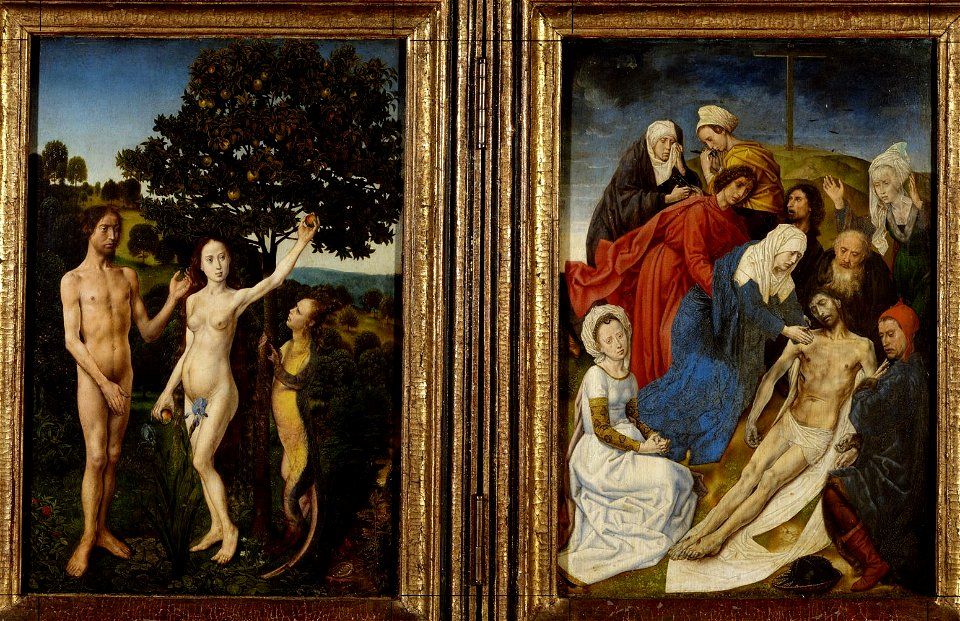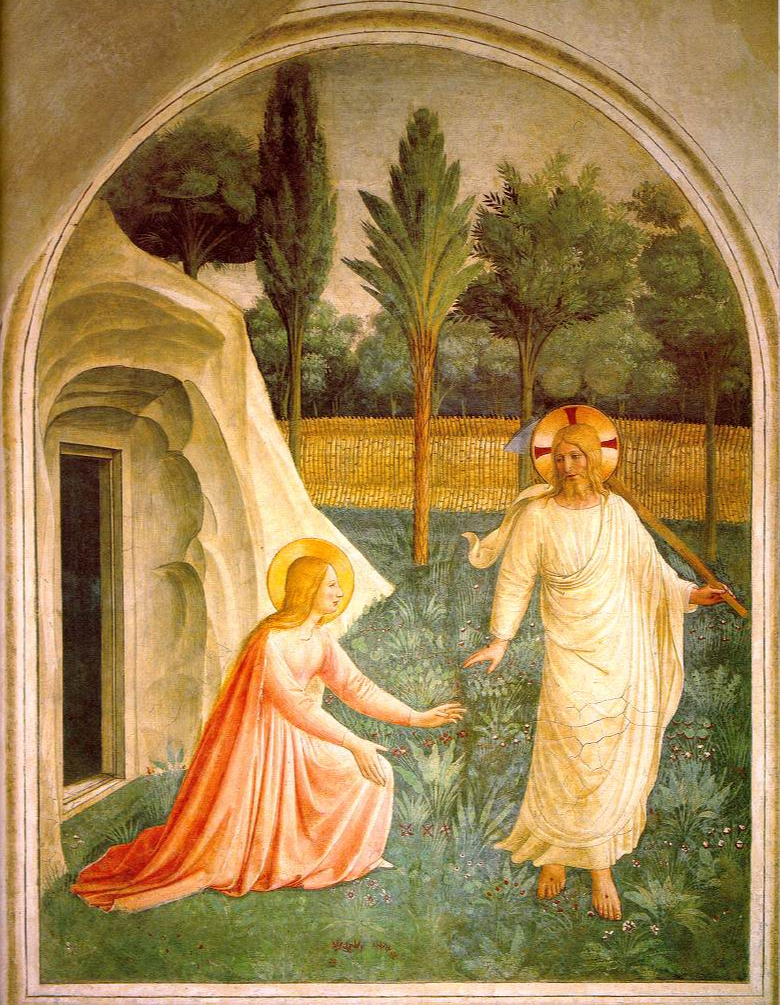
Fifth Week of Easter
Earth and Stars and Oceantide
What does the Resurrection have to do with creation? In a word, everything!
In the beginning, God created the heavens and the earth (i.e. all of creation), and it was all good. But the first man and woman, who walked in fellowship with God in the garden, who were supposed to be the benevolent rulers of creation, rebelled against God. By doing so, they brought down the rest of creation with them. The very ground fell under a curse when Adam and Eve sinned; this is epitomized by the thorns mentioned in Genesis 3. Henceforth, there was no harmony between man and creation or between the various creatures. Death and chaos became the law of the land.
But, of course, God was not content to leave his creation in ruins. Christ's mission was that of recreation. Jesus is the New Adam and Mary the New Eve. Through Christ's life, Death, and Resurrection, in which his Holy Mother cooperated, he inaugurated a New Creation. He wore a crown of thorns and died on a tree to abolish the curse of thorns and the fall that took place when Adam and Eve brought death into the world through a tree.
In the beginning, God created the heavens and the earth (i.e. all of creation), and it was all good. But the first man and woman, who walked in fellowship with God in the garden, who were supposed to be the benevolent rulers of creation, rebelled against God. By doing so, they brought down the rest of creation with them. The very ground fell under a curse when Adam and Eve sinned; this is epitomized by the thorns mentioned in Genesis 3. Henceforth, there was no harmony between man and creation or between the various creatures. Death and chaos became the law of the land.
But, of course, God was not content to leave his creation in ruins. Christ's mission was that of recreation. Jesus is the New Adam and Mary the New Eve. Through Christ's life, Death, and Resurrection, in which his Holy Mother cooperated, he inaugurated a New Creation. He wore a crown of thorns and died on a tree to abolish the curse of thorns and the fall that took place when Adam and Eve brought death into the world through a tree.

Jesus died to save mankind, certainly, but since man was given dominion over creation, its fate is linked to his. What Christ did for men and women effects all of creation. In the words of "Crux Fidelis," the great hymn of Good Friday,
No disgrace was too abhorrent:
Nailed and mocked and parched he died;
Blood and water, double warrant,
Issue from his wounded side,
Washing in a mighty torrent
Earth and stars and oceantide.
Christ's defeated death, period—not just human death. His Precious Blood was shed for the whole world in the broadest possible sense. Consequently, Easter Sunday, the first day of the week, is the first day of the New Creation. The God who walked in the garden with mankind in the beginning now walked in the garden near his empty tomb.
No disgrace was too abhorrent:
Nailed and mocked and parched he died;
Blood and water, double warrant,
Issue from his wounded side,
Washing in a mighty torrent
Earth and stars and oceantide.
Christ's defeated death, period—not just human death. His Precious Blood was shed for the whole world in the broadest possible sense. Consequently, Easter Sunday, the first day of the week, is the first day of the New Creation. The God who walked in the garden with mankind in the beginning now walked in the garden near his empty tomb.

Every man or woman who is in Christ is a new creation, but our Lord's work of recreation will not stop with mankind:
"For creation awaits with eager expectation the revelation of the children of God; for creation was made subject to futility, not of its own accord but because of the one who subjected it, in hope that creation itself would be set free from slavery to corruption and share in the glorious freedom of the children of God. We know that all creation is groaning in labor pains even until now..."
— Romans 8:19-22
Jesus has begun to fix what Adam broke. He is repairing mankind's relationship with creation and all the corruption (decay, destruction, and death) to which creation is subject. As with other forms of spiritual peace we have explored during the Easter season, we must wait for the fullness of peace with creation until Christ returns in glory and makes all things new. But this does not mean that we cannot experience this peace in our present life. During the fifth week of Easter, we will discover how we can participate in the New Creation here and now. We will begin by learning from the example of the saints.
"For creation awaits with eager expectation the revelation of the children of God; for creation was made subject to futility, not of its own accord but because of the one who subjected it, in hope that creation itself would be set free from slavery to corruption and share in the glorious freedom of the children of God. We know that all creation is groaning in labor pains even until now..."
— Romans 8:19-22
Jesus has begun to fix what Adam broke. He is repairing mankind's relationship with creation and all the corruption (decay, destruction, and death) to which creation is subject. As with other forms of spiritual peace we have explored during the Easter season, we must wait for the fullness of peace with creation until Christ returns in glory and makes all things new. But this does not mean that we cannot experience this peace in our present life. During the fifth week of Easter, we will discover how we can participate in the New Creation here and now. We will begin by learning from the example of the saints.
Grant, O Lord, that we may begin with holy fasting this campaign of Christian service, so that, as we take up battle against spiritual evils, we may be armed with weapons of self-restraint.
This collect prayer begins the Mass for Ash Wednesday, the first day of Lent. Jesus is calling us to "take up battle against spiritual evils." We'll explore fasting itself in a few weeks; during the week of Ash Wednesday, we're going to dig into an important set of weapons the Lord gives us to fight evil: sacramentals.
What's a sacramental? Well, if you attend Mass on Ash Wednesday, you're probably going to receive one on your forehead.
This collect prayer begins the Mass for Ash Wednesday, the first day of Lent. Jesus is calling us to "take up battle against spiritual evils." We'll explore fasting itself in a few weeks; during the week of Ash Wednesday, we're going to dig into an important set of weapons the Lord gives us to fight evil: sacramentals.
What's a sacramental? Well, if you attend Mass on Ash Wednesday, you're probably going to receive one on your forehead.

A Ministry of Our Lady of the Lake Catholic Church
480 152nd Avenue, Holland, MI 49424
lanecatholic@oll.org
Privacy Policy and Terms of Use
Copyright © 2026